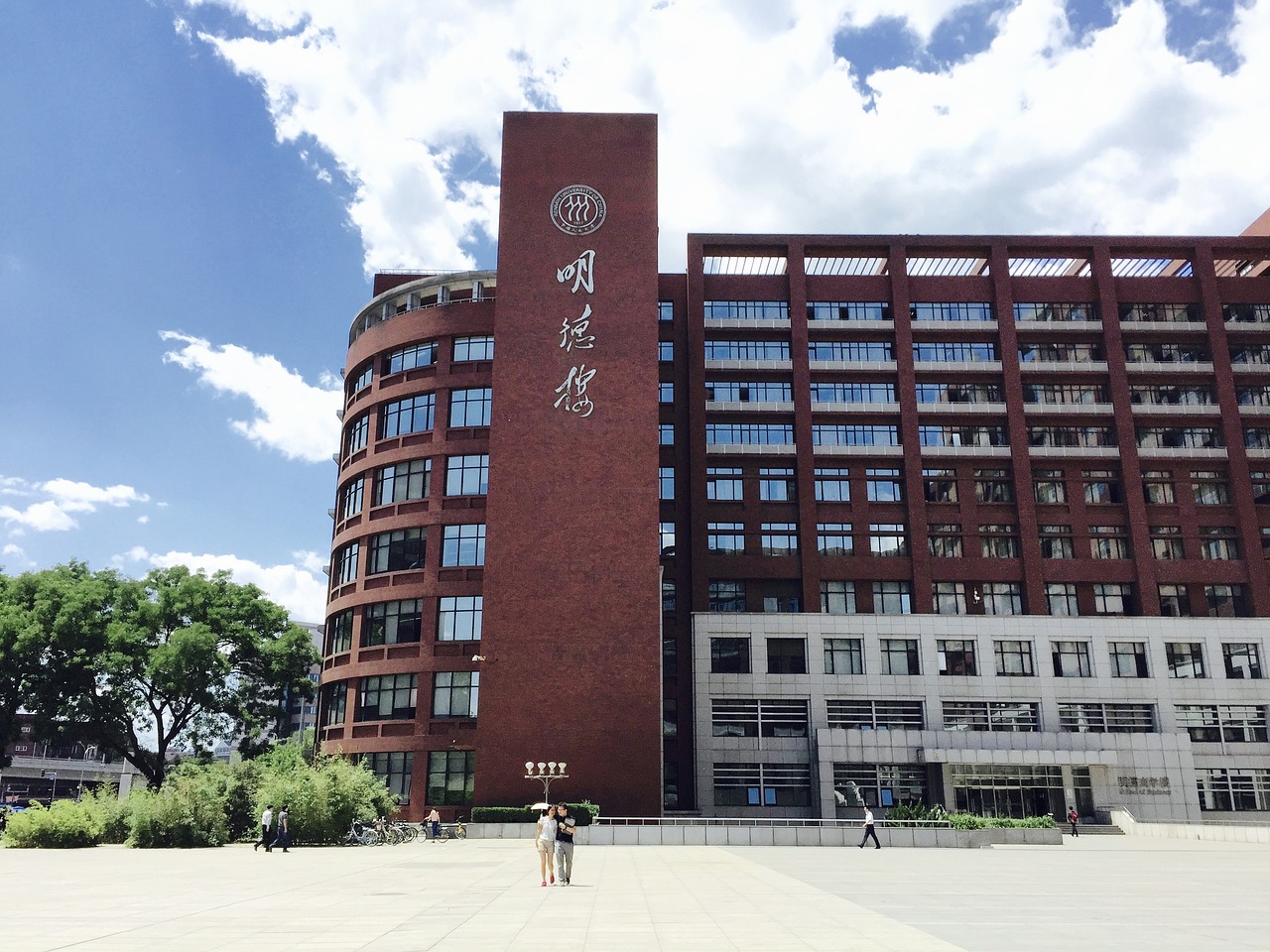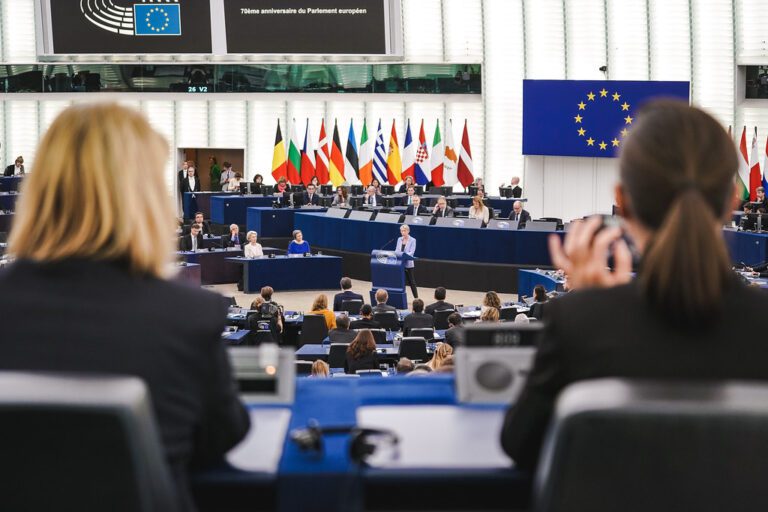
In general, academic exchanges are usually not framed within the concept of state security – neither external, nor internal. Quite the contrary, they are associated with establishing platforms of communication, enhancing people-to-people contacts and creating synergies for research. This non-zero sum understanding makes them something that should be promoted and supported for the gain of all parties involved. Such a description is also promoted by China e. g. in its Belt and Road Initiative with people-to-people exchanges, especially in the academia, as an important part of the cooperation.
So what actually makes academic exchange with China a security threat? I argue that the positive model described above may not be a reality in case of China, which instead views academic exchange mainly as a tool to achieve its own economic and political goals on the global stage, spread its view on international norms and limit criticism towards it. This obligates the European academic institutions to adopt extra security guarantees and precautions in their exchanges with Chinese partners.
China has a centralized, top-down model of promotion of its policy through research and educational institutions. That actually makes the cooperation originally described as people-to-people rather people-to-government with the Chinese academic institutions responsible for promoting the policy of the Beijing government. Why is this a threat to the European institutions? Because China’s efforts are contradictory to European values and interests. Beijing is seeking to achieve redefinition of key concepts related to issues such as human rights, protectionism, globalization and international law. The spread of China’s narratives and political concepts is also done through academic exchanges globally. Quite recently a Chinese official presented the Xinjiang camps for the Uyghur minority as ‘vocational centers’ while giving lectures at University of British Columbia in Canada.
China does not subscribe to the principle of academic freedom as understood in the EU, where ‘asking questions’ and ‘rejecting the obvious’ is essential but mostly non-existent in Chinese research, especially in social sciences. Critical scholars at Chinese universities are facing increasing pressure, defeating the purpose of universities as a platform for open discussion. The existence of e. g. ‘Communique on the Current State of the Ideological Sphere’ (so called ‘Document no. 9’) from 2013 issued by CCP Central Committee already proves that Beijing has a fundamentally restrictive view on issues permitted for scientific inquiry antithetical to European understanding. The document mentioned seven dangerous Western values which are forbidden to be promoted and taught in China. The banned seven were: promoting constitutional democracy, universal values, civil society, neoliberalism, West`s idea of journalism, historical nihilism, questioning reform and opening and socialist nature of socialism with Chinese characteristics. The guidelines included in the document as well as policies are widely followed by the Chinese academia.
Academic freedom is also endangered by the influence of organizations like e. g. Chinese Students and Scholars Association. In Australia or U.S. its representatives protested against inviting Dalai Lama or curriculums not compatible with China`s official policy regarding the perception of Taiwan, Hong Kong, Tibetan or Uyghur issues. The universities (mostly those depending on tuition fees) feel the pressure of acceding to the requests.
Foreign research institutions are also avoiding the sensitive issues out of the fear of China’s retaliation such as losing profits, cancelling grants or opportunities for scholars and institutions (one expert colorfully described this phenomenon as an “anaconda in the chandelier”). This has led to a trend of self-censorship within the academic community engaged in Chinese research globally. In 2017 several publishers (e.g. China Quarterly, Cambridge University Press) received requests to censor their content available in the mainland China due to the ‘unwanted’ and ‘politically controversial’ articles. Most of them decided to follow the requests. In the survey carried out among China scholars, more than 70 percent agreed that self-censorship is a problem. A limited number of China scholars have been blacklisted from China but many more (around 70 percent) have experienced a direct warning from the authorities. Such a tendency reduces the ability to fully and independently conduct the analysis on modern China.
The issue of self-censorship and academic freedom is also closely connected to the inclusion of Confucius Institutes into the structure of foreign academic institutions globally. Besides teaching Chinese they also present the situation in China – but they do so selectively. The teaching they provide is often crucial for foreign academic institutions allowing them to save funds and provide a more attractive offer to future students. In the U.S., the recent investigations by Education Department showed that 70 per cent of universities failed to properly report the Chinese government funding linked to the institutes. At the same time the Chinese government has been limiting the activities of U.S. programs like American Cultural Centers, manifesting the lack of reciprocity in academic access.
On top of the ideological, normative and political ramifications, there is also a possible security threat when academic exchanges may serve as way to acquire (with legal and semi-legal methods) advanced technology and know-how from European companies and research institutions through the involvement of Chinese and foreign scholars. There has recently been such a case in the U.S., where Chinese professors were accused of stealing valuable technologies from the U.S. companies. None of this has been reported in European academic sector (so far), but the presence of such practices elsewhere should raise alarm. There are also widespread practices of acting PLA officers studying at foreign universities in the U.S. but also Europe without revealing their affiliation. Recently, both the head of the FBI, as well as head of the Czech intelligence service pointed out the security threat directly associated with academic exchanges with China.
Chinese authorities are exploiting the conducive local situation in European countries. The knowledge on China is low, study programs underfunded and scholarships in high demand. European partners are interested in publication opportunities and participation in international conferences. China’s growing strategic competition with the U.S. involving both technological rivalry and ideological struggle will lead to the increase of the security risks.
Is there a solution? Should we stop the academic exchanges with China altogether? European partners should rather insist on safeguarding the academic freedom and pressure Chinese entities to respect the rules of independent research and their international obligations as a prerequisite for cooperation. There are for example codes of conduct such as the one published by the Human Rights Watch in March 2019, based on interviews with scholars, students as well as administration of higher education facilities. When norms are violated, reaction must be firm like in 2018 when Cornell University terminated an exchange program with Renmin University saying it was collusive in persecuting its students. Many leading Chinese universities together with European, American and Australian counterparts signed the Hefei Statement in 2013 where academic freedom is one of the most important features. These commitments should be upheld.
In order to directly counter the self-censorship there is also a need to put more state or independent funding into China studies. Pragmatic orientation of higher education facilities on cooperation with China is very often connected with its ability to fund extra research programs or language courses. That might create a situation where chancellors of institutions force academia to follow Chinese restrictions in order to keep the cooperation going.
Written by
Marcin Przychodniak
Molos123Marcin Przychodniak is an Analyst at Asia-Pacific program at the Polish Institute of International Affairs (PISM), focusing on Chinese politics and a former diplomat in Beijing.


